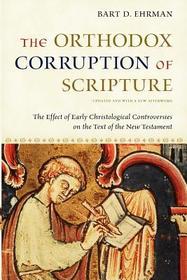
Models of Language Acquisition
Inductive and Deductive Approaches
-
10% KEDVEZMÉNY?
- A kedvezmény csak az 'Értesítés a kedvenc témákról' hírlevelünk címzettjeinek rendeléseire érvényes.
- Kiadói listaár GBP 47.99
-
22 927 Ft (21 835 Ft + 5% áfa)
Az ár azért becsült, mert a rendelés pillanatában nem lehet pontosan tudni, hogy a beérkezéskor milyen lesz a forint árfolyama az adott termék eredeti devizájához képest. Ha a forint romlana, kissé többet, ha javulna, kissé kevesebbet kell majd fizetnie.
- Kedvezmény(ek) 10% (cc. 2 293 Ft off)
- Kedvezményes ár 20 634 Ft (19 652 Ft + 5% áfa)
Iratkozzon fel most és részesüljön kedvezőbb árainkból!
Feliratkozom
22 927 Ft

Beszerezhetőség
Megrendelésre a kiadó utánnyomja a könyvet. Rendelhető, de a szokásosnál kicsit lassabban érkezik meg.
Why don't you give exact delivery time?
A beszerzés időigényét az eddigi tapasztalatokra alapozva adjuk meg. Azért becsült, mert a terméket külföldről hozzuk be, így a kiadó kiszolgálásának pillanatnyi gyorsaságától is függ. A megadottnál gyorsabb és lassabb szállítás is elképzelhető, de mindent megteszünk, hogy Ön a lehető leghamarabb jusson hozzá a termékhez.
A termék adatai:
- Kiadó OUP Oxford
- Megjelenés dátuma 2002. augusztus 1.
- ISBN 9780199256686
- Kötéstípus Puhakötés
- Terjedelem302 oldal
- Méret 234x156x16 mm
- Súly 455 g
- Nyelv angol
- Illusztrációk Numerous black and white line figures 0
Kategóriák
Rövid leírás:
This book presents recent advances by leading researchers in computational modelling of language acquisition. The contributors, from departments of linguistics, cognitive science, psychology, and computer science, combine powerful computational techniques with real data and in doing so throw new light on the operations of the brain and the mind. They explore the extent to which linguistic structure is innate and/or available in a child's environment, and the degree to which language learning is inductive or deductive. They assess the explanatory power of different models. The book will appeal to all those working in language acquisition.
TöbbHosszú leírás:
This book presents recent advances by leading researchers in computational modelling of language acquisition. Sophisticated theoretical models can now be tested using simulation techniques and large corpora of linguistic data. Renewed interest in learning neural networks and the ability to test new solutions to fundamental problems has fuelled debates in an already very active field. The twenty-four authors in this collection of new work have been drawn from departments of linguistics, cognitive science, psychology, and computer sciene. The book as a whole shows what light may be thrown on fundamental problems when powerful computational techniques are combined with real data.
A central question addressed in the book concerns the extent to which linguistic structure is readily available in the environment. The authors consider the evidence in relation to word boundaries and phonotactic structure, stress patterns, text-to-speech rules, and the mapping of lexical semantics, one author arguing that a child's own output may serve as a key source of linguistic input. Linguistic structure environment relations are central to the debate on the degree to which language learning is inductive or deductive; this issue is considered here in studies of the acquisition of pluralization and inflectional morphology.
The book examines the power and utility of different modelling formalisms for different problems and approaches: how far, for example, can connectionist models be used as models for language acquisition? To what degree can lexical items and categories be used in the construction of neural network models or Markov chains be deployed to investigate the characteristics of a general language learning algorithm (Triggering Learning Algorithm)?
This book will appeal to linguists, psychologists, and cognitive scientists working in language acquisition. It will also interest those involved in computational modelling in linguistics and behavioural science.
Review from hardback edition
This is a volume which fairly depicts the field that it represents.
Tartalomjegyzék:
Introduction: The Computational Study of Language Acquisition
Part I: Words
Lexicalist Connectionism
Are SRNs Sufficient for Modelling Language Acquisition?
A Distributed, Yet Symbolic Model for Text-to-Speech Processing
"Lazy Learning": Natural and Machine Learning of Word Stress
Part II: Word Formation
Statistical and Connectionist Modelling of the Development of Speech Segmentation
Learning Word-to-Meaning Mappings
Children's Overregularization and its Implication for Cognition
A Recurrent Network with Short-term Memory Capacity Learning the German -S Plural
Single- and Dual-Route Models of Inflectional Morphology
Part III: Word Order
Formal Models for Learning in the Principles and Parameters Framework
An Output-as-Input Hypothesis in Language Acquisition
Notes on Contributors
Addresses
Index





